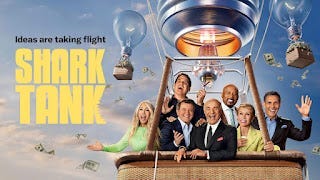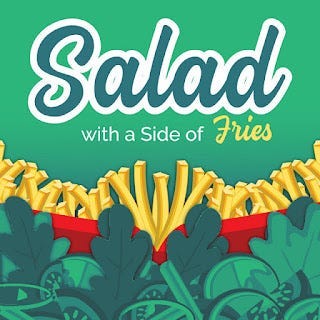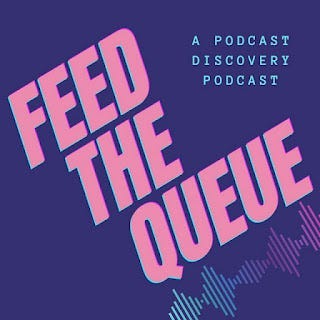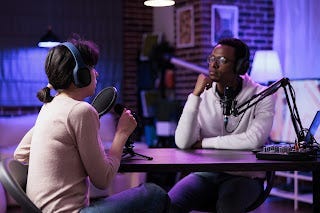Shark Tank is an American business reality television series that premiered on August 9, 2009, on ABC. The show is the American franchise of the international format Dragons’ Den, a British TV series that is itself a remake of the Japanese TV show The Tigers of Money. It shows entrepreneurs making business presentations to a panel of five angel investors (providers of venture capital to early-stage start-ups) called “Sharks” on the program, who decide whether to invest in their companies.
The series has been a ratings success in its Friday night time slot, winning the Primetime Emmy Award for Outstanding Structured Reality Program five times (2014–2017 and 2024).
My personal favorites are Barbara Corcoran, Robert Herjavic, and Daymond John. My least favorite is Mr. Wonderful, Kevin O’Leary, who reinforces the conventional wisdom that ultrarich people are douches.
Why do I bring up Shark Tank when discussing podcasts? I think we need a Shark Tank-style show for indie podcast investors.
Here’s the premise. We’d start with four indie podcasting entrepreneurs, such as Liam Heffernan of the Mercury Podcast Network, Donald Albright from Tenderfoot TV (if that network ever decides to collaborate with indie podcasters), Arielle Nissenblatt of EarBuds Podcast Collective, and someone from Next Chapter Podcasts, if they were to seriously consider incorporating existing indie podcasts.
Just like in Shark Tank, these four indie podcasting entrepreneurs would hear pitches from indie podcasters, who would play them a two-minute trailer. Then, after interviewing the indie podcasters, the Podcast Sharks would then make bids on the shows. If the indie podcast has a video version, then the video trailer could be played. At the same time, the audio-only version could supply images during the trailer playback or show a video of the audio-only version.
It would be an hour-long show on a streaming service like Tubi or Pluto, so podcast fans wouldn’t need to buy a subscription to the service to listen to the show. The ads shown would be for existing indie podcasts, such as Salad With A Side Of Fries or Silvertongues.
The emcee, or host, of the show should be someone from the indie podcasting community, rather than a celebrity with a podcast. Choices include Mathew Passy from Podcasting Tech, Forrest Kelly, host of The Best 5 Minute Wine Podcast, Dan Weissmann of An Arm And A Leg, Michael Hobbes and Peter Shamshiri from If Books Could Kill, Danny Brown of 5 Random Questions, or Amanda B from Six Degrees Of Cats. These people are the classic “Hosts With The Most.”
To announce the contestants into the “Tank,” we’d employ Gemma Smith from Tails And Tassels, Mark Steadman from Undo, or the team of Dr. Tamanda Walker and Aiwan Obinyan from Rigour & Flow. These people offer gravitas.
On each episode, three indie podcasters would enter the “shark tank” hoping for a deal. In the last segment of the show, the co-hosts of the Feed The Queue podcast (Devin Andrade, Holly Brown, Anne Baird, Andreea Coscai, Lauren Passell, Shreya Sharma, and Wil Williams), which features new, mostly indie podcasts, would review ear-worthy podcasts that stand out among the thousands of podcasts on podcast feeds and YouTube. Their focus would be on hidden gems, indie podcasts that deserve a lot more attention.
As in the authentic Shark Tank, success stories are periodically broadcast on the show. These success stories would be indie podcasters who made a deal with a shark and are now flourishing.
In every other media format — books, TV, movies, and music — indie practitioners are welcomed into the mainstream industry. In many cases, as in music, they often drive new trends and bring in new fans.
In podcasting, however, indie podcasters have been relegated to the outskirts of the industry.
The industry needs a system that enables high-quality, creative, unique, and refreshing podcasts to thrive. People in podcasting and listeners will often say that podcasting’s biggest problem is discoverability.
I disagree. We know where the superb podcasts are located, primarily in the indie podcasting space. What is needed is a path for these podcasts to become self-sustaining.
So welcome to Indie Podcast Shark Tank. Next up in the Tank is…(Fill in name of deserving, overworked, underappreciated indie podcaster HERE).









What a fun idea!
I'd love to be on this show as a contestant! For the past few years I've been hosting a social media news show featuring clips from people who work at the platforms.
But if the sharks didn't like my show, I'm not sure my ego could take that.